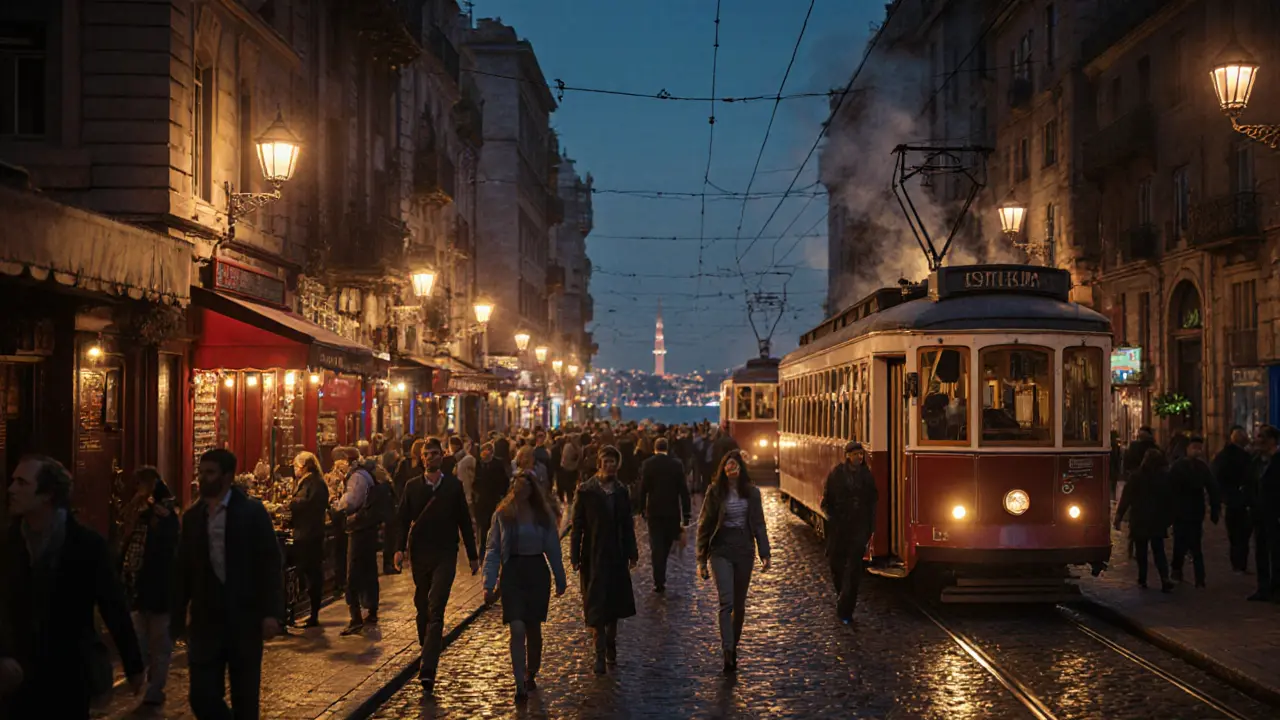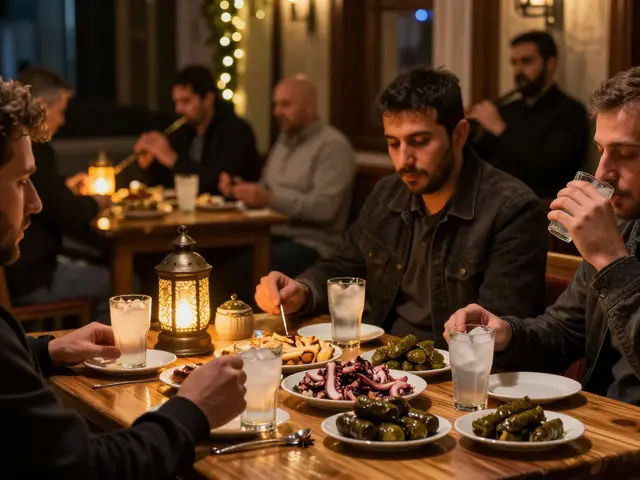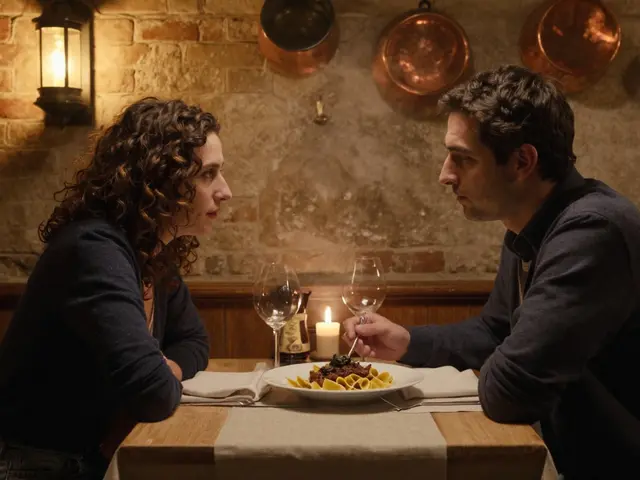Istanbul doesn’t shut down when the sun goes down
Most cities quiet down after midnight. Istanbul? It’s just getting started. By 1 a.m., the streets of Beyoğlu are buzzing, the bass from underground clubs rumbles through the Bosphorus, and kebab shops are still serving hungry crowds. This isn’t just a party scene-it’s a cultural rhythm. Locals work late, tourists wander in from the Old City, and expats gather in hidden courtyards. There’s no single ‘Istanbul nightlife.’ There are dozens of them, each with its own pulse.
Where the locals go: Beyoğlu and Nişantaşı
If you want real Istanbul nightlife, skip the tourist traps near Taksim Square. Head deeper into Beyoğlu, where İstiklal Avenue turns into a living room for the city. You’ll find jazz bars tucked above bookstores, rooftop lounges with Bosphorus views, and tiny mezze spots where the wine flows like water. Bar 1914 serves cocktails in vintage glassware, while Asitane offers traditional Turkish music with live oud and darbuka-no cover charge, just good company.
For something quieter, walk up to Nişantaşı. This upscale neighborhood is where Istanbul’s creatives unwind. Bar Neva has a speakeasy vibe with a rotating cocktail menu. Leb-i Derya is a garden bar where you sip raki under string lights, surrounded by art galleries and designer boutiques. No loud music. No flashing lights. Just slow nights with friends.
Clubs that define the scene: From underground to glitter
Istanbul’s club scene splits into two worlds: the gritty and the glamorous. On the gritty side, Karga in Karaköy is a warehouse-turned-club that plays techno, house, and experimental beats. It’s unmarked, no sign, just a red door. Locals know it by word of mouth. The crowd? Artists, DJs, students. The vibe? Raw, real, and unforgettable.
For glitter and glamour, Reina on the Bosphorus is the place. A floating venue with open-air decks, it’s where celebrities, models, and wealthy Turks dance under stars. The music shifts from Turkish pop to international hits. Dress code? Sharp. No flip-flops. No shorts. You’ll pay 150-200 TL just to get in, but the view alone-boats gliding past, city lights reflecting on water-is worth it.
Don’t miss Karaköy Live on weekends. It’s a hybrid: live bands in the front, DJs spinning in the back. You can start with a folk singer and end up dancing to disco. It’s the perfect bridge between old and new Istanbul.
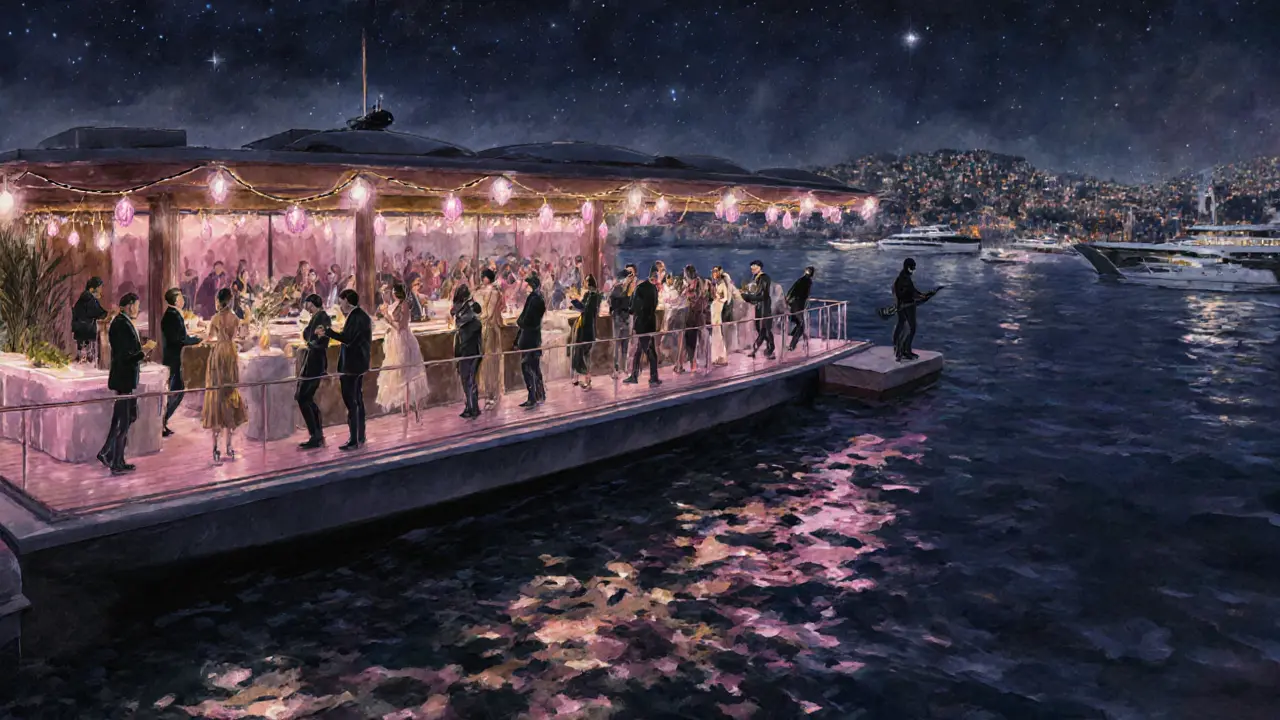
Bars you won’t find on Google Maps
The best spots in Istanbul aren’t listed on TripAdvisor. They’re passed down like family recipes. In the back alley of a 19th-century building near Galata, you’ll find Asmalı Mescit-a tiny bar with no sign, just a single lamp. Inside, locals sip raki with olives and talk politics. No menu. Just what’s on tap.
Down in Kadıköy, across the Bosphorus, Bar 12 is a hidden gem. It’s run by a former jazz musician who plays vinyl records on a vintage turntable. The walls are covered in old concert posters. The drinks? Simple. Whiskey, gin, or a glass of local white wine. The rule? No phones on the table. Conversation only.
These places don’t need marketing. They survive because people keep coming back.
What to eat and drink after midnight
Nightlife in Istanbul isn’t just about drinks-it’s about food. At 3 a.m., the city’s best kebab joints are just hitting their stride. Çiya Sofrası in Kadıköy serves slow-cooked lamb and grilled eggplant that tastes like it’s been simmering since sunset. Order the lahmacun-Turkish pizza-with a side of pickled turnips.
For something lighter, try Midye Dolma-stuffed mussels sold from street carts. You’ll find them near the Galata Bridge, wrapped in paper with a squeeze of lemon. It’s messy. It’s delicious. It’s Istanbul.
And then there’s raki. Turkey’s national drink. It’s anise-flavored, clear, and turns milky white when you add water. Don’t order it neat. Don’t rush it. Sip slowly with meze: grilled octopus, feta with honey, stuffed grape leaves. The night doesn’t end until you’ve had at least one glass.
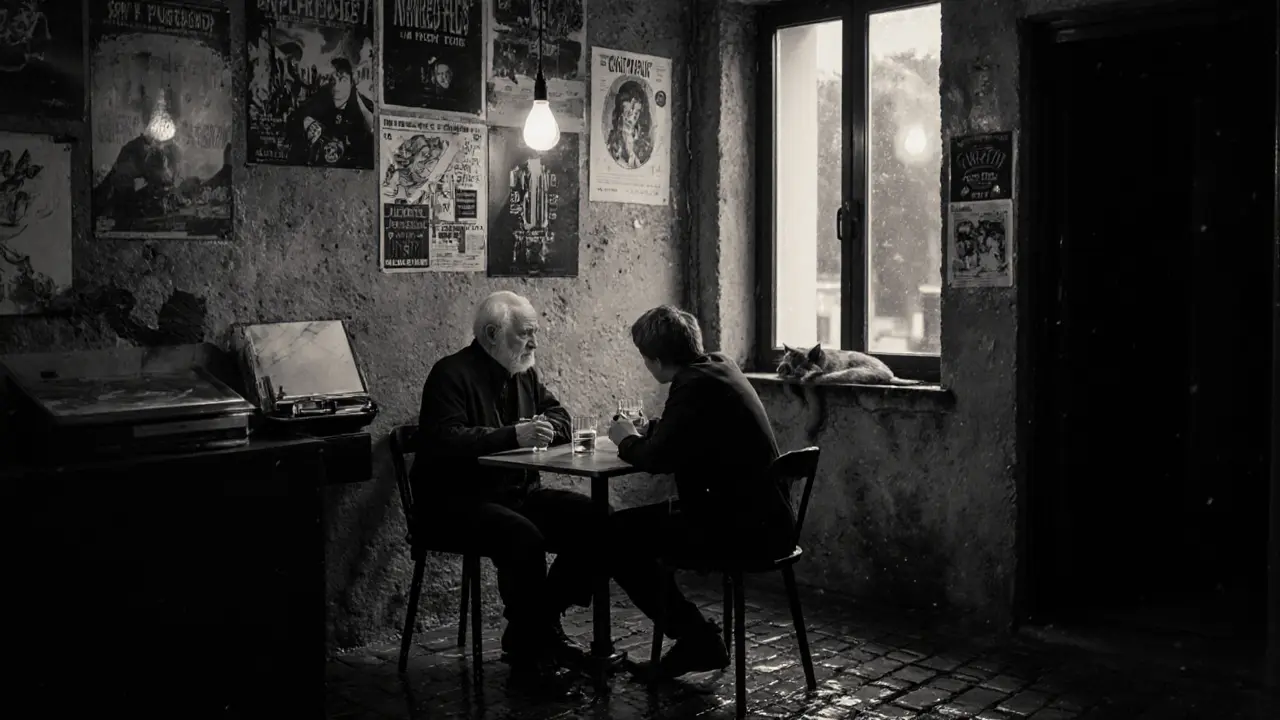
When to go and what to avoid
Friday and Saturday nights are packed. If you want space, go on a Wednesday. Weekends mean long lines at Reina and Karga. Arrive before midnight to skip the wait. Dress smart but comfortable-heels won’t survive cobblestones, and shorts won’t get you into Reina.
Avoid the clubs near Taksim Square that target tourists with ‘free entry’ ads. They’re overpriced, loud, and full of people who don’t know the city. Stick to the neighborhoods locals live in. Ask a bartender where they go after their shift. That’s your real tip.
Also, don’t expect 24/7 partying like in Berlin or Ibiza. Istanbul’s nightlife has rhythm. Clubs close around 4 a.m. Some bars stay open until 6. But by 7, the streets are quiet again. The city sleeps-just not for long.
How to get around after dark
Public transport runs until 2 a.m. on weekends. After that, use BiTaksi-the local Uber. It’s cheaper than taxis, and drivers speak English. Never flag down a random cab. Always use the app.
If you’re feeling adventurous, walk. Istanbul’s streets are safe at night, especially in Beyoğlu and Kadıköy. The city lights up like a movie set. You’ll pass musicians playing ney flutes, old men playing backgammon, and women carrying bags of fresh bread. It’s not just a night out-it’s a walk through history.
Why Istanbul’s nightlife feels different
It’s not just the music or the drinks. It’s the mix. A Turkish grandmother sipping tea beside a Berlin DJ. A Syrian refugee playing oud in a bar owned by a French expat. A group of university students debating philosophy over raki. Istanbul doesn’t separate its cultures-it blends them. That’s why the nightlife here doesn’t feel manufactured. It feels alive.
You won’t find a ‘scene’ here. You’ll find a thousand small scenes, each with its own story. And if you listen closely, you’ll hear the city breathing-late, loud, and beautiful.
Is Istanbul nightlife safe for tourists?
Yes, Istanbul’s nightlife is generally safe for tourists, especially in popular areas like Beyoğlu, Karaköy, and Kadıköy. The streets are well-lit, and police presence is common near clubs and main squares. Avoid isolated alleys after 2 a.m., don’t carry large amounts of cash, and always use official ride apps like BiTaksi. Petty theft is rare, but pickpockets can be active in crowded spots like İstiklal Avenue on weekends.
What’s the best night to experience Istanbul’s club scene?
Friday and Saturday nights are the busiest, with the biggest crowds and top DJs playing at Reina, Karga, and Karaköy Live. But if you want a more authentic, less crowded experience, go on a Wednesday. Many locals and artists have their nights out midweek, and the vibe is more relaxed. You’ll get better service, shorter lines, and sometimes even free entry.
Do I need to dress up to go out in Istanbul?
It depends on where you’re going. For rooftop bars and clubs like Reina or Leb-i Derya, smart casual is expected-no shorts, no flip-flops. For underground spots like Karga or Bar 12, jeans and a clean shirt are fine. Locals dress with care, even when it’s casual. A well-fitted jacket or stylish shoes goes a long way. When in doubt, lean toward neat and polished.
Can I find Western-style clubs in Istanbul?
Yes, but they’re not the main attraction. Reina and some venues in Nişantaşı play international hits, EDM, and house music that feel familiar to Western visitors. But the real magic is in the fusion-Turkish pop mixed with techno, Arabic rhythms under disco lights, or jazz played with a ney flute. If you’re looking for a carbon-copy of Berlin or London, you’ll be disappointed. If you want something new, you’ll love it.
Are there any quiet nightlife options in Istanbul?
Absolutely. Kadıköy’s Bar 12, Nişantaşı’s Asitane, and the rooftop garden at Kuruçeşme are all calm, intimate spots. You can enjoy live acoustic music, wine tastings, or just sit under lanterns with friends. These places don’t blast music. They encourage conversation. If you want to escape the noise but still enjoy the night, this is where you’ll find it.
How late do places stay open in Istanbul?
Most clubs close between 4 and 5 a.m. Bars in Beyoğlu and Kadıköy often stay open until 6 a.m., especially on weekends. Some 24-hour cafes and kebab spots operate all night. But the city doesn’t run like New York-there’s a natural wind-down. By 7 a.m., the streets are quiet again. If you want to keep going, head to a Turkish breakfast spot. Many open at 6 a.m. and serve fresh simit, tea, and eggs with the sunrise.
Is it easy to find English-speaking staff in nightlife venues?
In tourist-heavy areas like İstiklal and Karaköy, most bartenders and club staff speak basic to fluent English. In smaller, local spots-especially in Kadıköy or hidden courtyards-English might be limited. But that’s part of the charm. A smile, a pointing gesture, and a few Turkish phrases like ‘lütfen’ (please) and ‘teşekkür ederim’ (thank you) go a long way. Locals appreciate the effort.

